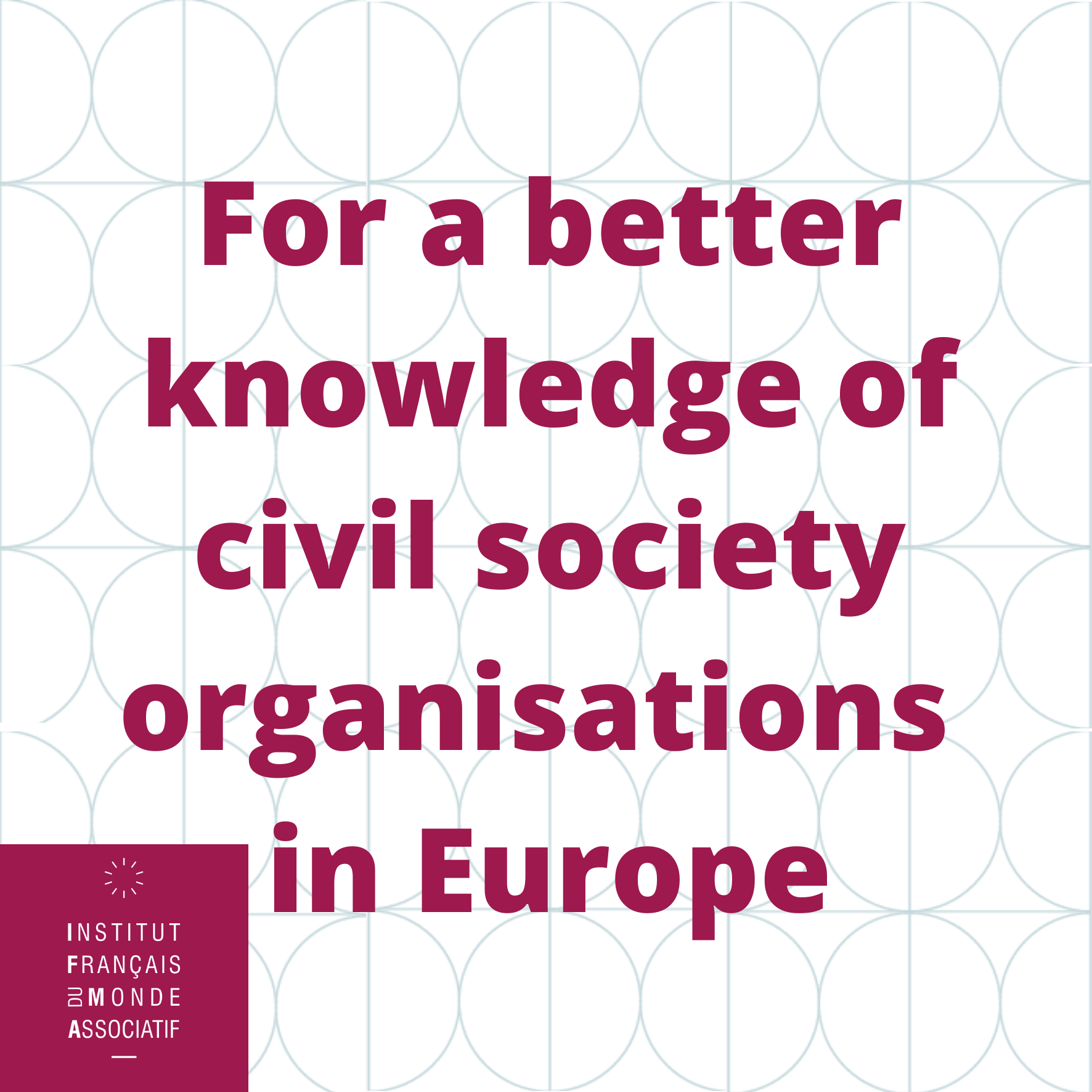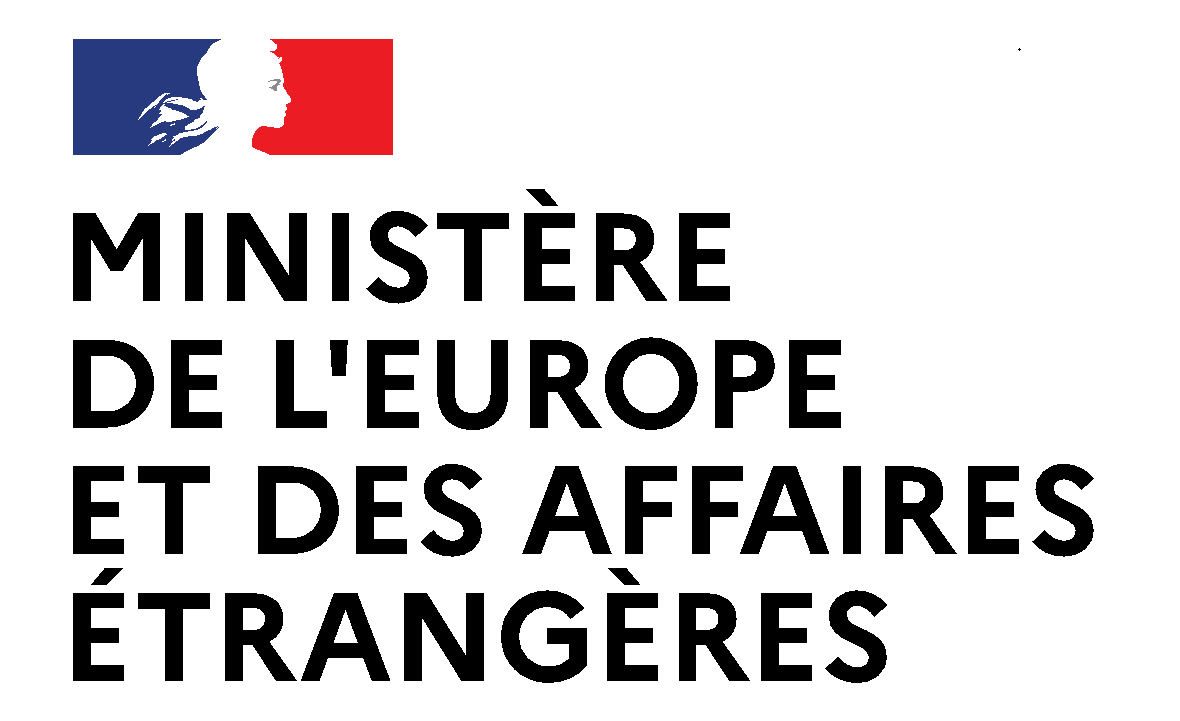Civil Society Organisations & Democracy in Europe
Civil society organisations, non-profit organisations… What do we know about the civic space in European countries? What are the legal characteristics of a CSO? How have CSOs been structured throughout history, through social movements, and crises? How can they be numbered at the European level? and how do they contribute to strengthening democracy across Europe?
At a time when European democracies are suffering from numerous crises, it is necessary to rethink the role that CSOs play in our society. Building knowledge on the weight of CSOs, the different forms they take, their challenges, resources, and their contribution to society and democracy on a European scale can nevertheless be difficult.
What are the priority knowledge needs?
CSOs are essential to the well-functioning of democracy: they contribute to the promotion of humanistic values, the strengthening of social cohesion, citizen empowerment, as well as inspire public policies. However, these contributions remain blank spots of knowledge.
We also lack the means to measure the weight of CSOs in Europe and have insufficient comparative analyses that support the advancement of civil society at the European level. The evolution of engagement, as observed by CSOs, also remains undocumented and unanalysed.
At a time when multiple crises are increasing, amid a context of growing economic precariousness for CSOs, a better interaction between public policies, philanthropic partners, and CSOs is necessary to collectively devise suitable responses.
The history of social and citizen movements in Europe, in the context of crises, could help clarify the future.
Learn more about the knowledge needs of CSOs in our white paper “For a better knowledge of civil society organisations in Europe”.
Replay of the webinar “CSOs and Democracy in Europe” (14/04/2023)

A workgroup gathering actors and researchers
Launched in 2022, our workgroup brought together 48 CSO actors, philanthropic partners, and researchers from 16 European countries to identify the priority knowledge needs of CSOs and explore the avenues to enhance understanding on these topics.
This workgroup was led by experts:
- Rupert Graf Strachwitz, Doctor in Political Science, Former Director of the Maecenata Foundation for Philanthropy and Civil Society, and a member of our Scientific Committee.
- Bernard Enjolras, Research Director at the Institute for Social Research, Director of the Norwegian Center for Research on Civil Society and Voluntary Sector, editor of the Voluntas Journal, and a member of our Scientific Committee.
- Claire Thoury, President of Le Mouvement Associatif and board member of the Institute.
Find the list of the participants in our white paper “For a better knowledge of civil society organisations in Europe”.
Towards a European knowledge-based programme
Since the John Hopkins project on the nonprofit sector around the world, led by Edith Archambault for Europe and completed in 2007, we have faced a dearth of comparative studies on European civil society. However, a more profound comprehension of the civic realm at this magnitude could facilitate improved training for CSO actors and wield influence over citizen participation, CSOs, as well as the national and European policies that regulate them.
Since 2022, we have been working on the implementation of an ambitious knowledge-based support programme. The EURASSO project, supported by the European Commission and the French Ministry of Europe and Foreign Affairs, allowed us to identify the priority knowledge needs for CSOs, launch a digital library, and structure a network of actors and researchers around this theme.
Since then, our Institute strengthened its collaboration with the Maecenata Foundation and the International Society for Third Sector Research (ISTR) through the establishment of the Regional Group “ISTR Europe and Neighbors”, which organised two successful webinars in 2023. As part of this initiative, together with Maecenata, we co-hosted a world café during the 16th International ISTR Conference in July 2024.
As of November 2024, we are organising a series of European webinars that frame the role of research in the CSO community and foster a stronger community of knowledge (researchers and practitioners) dedicated to the civil society sector in Europe. Find more information on this event here.
We will continue in our endeavor to support new ambitious research in the future, reinforce a network of knowledge, and enhance the exchange of expertise among the civil society, philanthropic, public, and academic sectors.
A collaborative digital library
Find our collaborative digital library, compiling to this day over 600 scientific and professional references in English.
Interested in contributing? Fill-in the form bellow (only available in English)!
Find our publications, videos, and other resources on this thematic area
Our YouTube playlist on CSOs and Democracy in Europe
Playlist available here.
European civil society in the public sphere
An article published in Alliance Magazine (2021). Available here.
Analysis of our digital library
The analysis was conducted by Bernard Enjolras (2022). It is only available in English here.
We thank our partners for their support



The French Institute for Civil Society Organisations
1 Rue Dr Fleury Pierre Papillon, 69100 Villeurbanne
